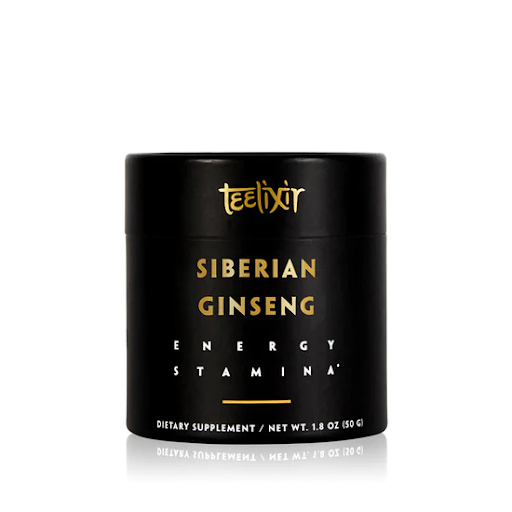Siberian ginseng, also known as eleuthero, is a plant native to eastern Asia, including Siberia, China, and Japan. It has been used for centuries in traditional medicine for its supposed health benefits. In the following centuries, Eleuthero became a popular herb in traditional Chinese medicine and was used to treat various conditions, including fatigue, weakness, and stress. However, the scientific evidence for these claims is limited, and more research is needed to understand Siberian ginseng's potential health benefits fully.
Benefits of Siberian Ginseng
Here is the list of Siberian Ginseng benefits; keep reading!
Mental and Physical Fitness
Eleuthero exhibits a similar capacity to coffee in enhancing physical endurance and mental clarity without a looming collapse. Eleutherococcus Senticosus may improve overall endurance performance, fat metabolism, and cardiorespiratory fitness, according to studies that have yet to be completed.
Botanical Medicine for Women's Health states that "Clinical data also have revealed that individuals with moderate fatigue in chronic fatigue syndrome may benefit from the usage of Eleuthero and that older persons may safely enjoy an improvement in several measures after four weeks of therapy of health and social functioning, albeit these differences decrease with continuing use."
Does eleuthero root increase testosterone? The book also discusses a study on the relationship between a stress reaction and athletic performance, demonstrating that eleuthero increases the testosterone: cortisol ratio by over 28%, a sign of a lowered stress response in athletes.
Flu and Colds
The benefits of eleuthero root include its demonstrated capacity to defend against viruses resulting in the flu and the common cold. It is frequently used as a home treatment for the flu and cold.
A liquid extract from the root effectively prevents the replication of human rhinovirus, the primary cause of the respiratory syncytial virus, the common cold, which causes respiratory tract infections, and influenza A virus, which causes the flu, in cell cultures that have been infected with these viruses, according to an in vitro study that was published in the medical journal Antiviral Research.
Herpes
In one double-blind, placebo-controlled, six-month research, 93 men and women with recurrent herpes infections—specifically, those caused by the herpes simplex virus (HSV) type 2 that causes genital herpes—were treated with Siberian ginseng. The study participants received daily doses of two grammes of Siberian ginseng root. According to the study, Siberian ginseng reduced the incidence, severity, and length of herpes outbreaks.
Memory and Learning
The effects of Eleutheroside B and E on memory and learning in experimentally aged rats are examined in a randomised, controlled animal study that was published in the journal Neural Regeneration Research. These Siberian ginseng active ingredients have been demonstrated to enhance cognition, reduce fatigue, and improve memory.
Eleutheroside B or E was injected into animal participants in this investigation at low, medium, and high doses (50, 100, or 200 mg/kg). Four weeks after injection, behaviour tests showed that Eleutheroside B or E improved memory and learning in old rats.
Anti-Cancer Possibilities
People frequently employ Siberian ginseng for its anti-inflammation, anti-fatigue, anti-stress, anti-ulcer, and cardio-boosting properties in nations like China, Japan, Korea, and Russia. Recent studies now suggest that this remarkable plant may be able to combat cancer.
Siberian ginseng has been shown to have inhibitory effects on malignant tumours, including those in the liver and lung, in both in vitro and in vivo trials, according to a research paper in Chinese Medicine. Some specialists think this plant may have a good chance of being turned into a powerful anticancer medicine.

No comments:
Post a Comment